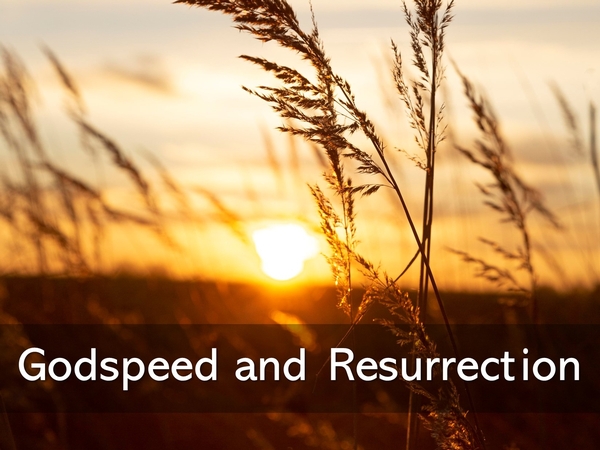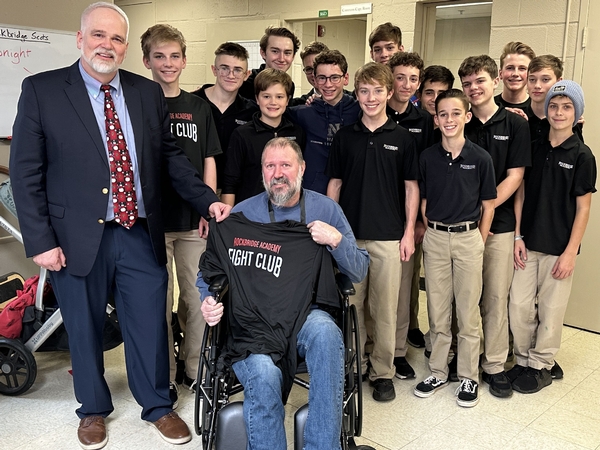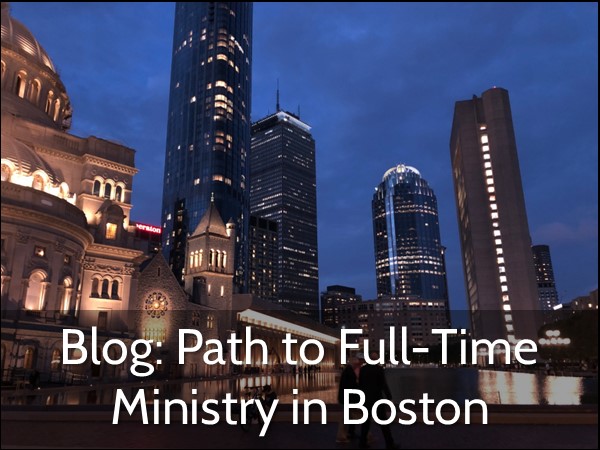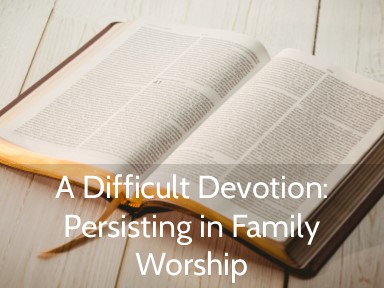Rockbridge Academy Blog
Reconnecting with Rockbridge in Costa Rica!

Your eyes saw my unformed substance; in your book were written, every one of them,
the days that were formed for me, when as yet there was none of them.
Psalm 139:16
For those who don’t know me, my name is Noelle. I graduated from Rockbridge Academy in 2022 and am now studying Philosophy at Princeton University. This summer, I had the amazing opportunity to reconnect with part of the Rockbridge community by serving as staff on a 5-week mission trip to Costa Rica. My trip was organized by Royal Servants, a mission organization for high school students that focuses on discipleship and equipping students to serve the church and share the gospel in their communities back home. Our team was being led by Mr. Matt Swanson, upper school Bible teacher at Rockbridge. I came on the trip as a college-age leader, so my main role was to mentor a small group of girls throughout the trip. As a team, we studied the Bible together, we prayed together, we worshiped together, and we did outreach together. Throughout the summer, I was encouraged to see how God had been preparing me for this experience and was teaching me to trust in Him and His plan for me.
Mr. Swanson continually stressed to the team that we were not bringing Jesus to Costa Rica. We were there to join in the work that God was already doing there. Each day we would head out to do gospel-centered outreach alongside students from our hosting church. We also visited schools to teach English, play games, build relationships, and talk to students about faith. Certain days of ministry were fast-paced and encouraging; other days were slow or frustrating.
There were definitely times when I wondered why I had even come on the trip. Even after sharing the gospel with strangers and having many spiritually-oriented conversations with the girls in my small group, I wondered whether I would really make a life-long impact on anyone’s heart this summer. As I wrestled with these thoughts and feelings, God answered my unspoken questions through the encouraging words of my leaders and, towards the end of the trip, through the testimonies of girls in my small group who spoke of how they had been inspired by my example to live out their faith in Christ.
Throughout the summer, I saw God redeem discouraging situations for our good and His glory.
Throughout the summer, I saw God redeem discouraging situations for our good and His glory. One afternoon our team arrived in the nearby town of Paraíso and it immediately began raining. We went out in groups looking for people to invite to our outreach activities, but we eventually all ended up back under the big tent at the park. We didn't end up doing our presentations that day because no one came. The team was pretty discouraged. While we were standing around with our games and equipment wondering what to do, a middle-aged man named William happened to pass by and stopped under the tent to get out from the rain. One of my teammates and I managed to engage him in conversation, and we ended up talking about everything from sports and culture to Jesus and heaven. William was a Christian and reminded us that we were family in God even though we didn't have much else in common. We talked for probably half an hour and had the opportunity to pray together (in a mixture of English and Spanish). What strikes me with gratitude and wonder is that none of that would have happened if it hadn't been raining! And this was only one of the many stories I could tell of how God used difficult circumstances for His pre-prepared purposes.
God also encouraged me throughout the summer by making it clear that He had placed me on this particular team. I only discovered the opportunity to go to Costa Rica with Royal Servants after a number of other summer opportunities fell through. When it seemed like I had exhausted every avenue to find funding from my school for the trip, I was finally able to qualify for their service internship program, which, along with the generous support of the family of God, made it possible for me to go on this mission trip. God had been working for months and honestly, years before I ever left the country to place me on that airplane.
Another way in which God confirmed that He was using me for His purposes was through a small contribution I brought to our team: Spanish. At the beginning of the trip, I was daunted but also pleasantly surprised to discover that my early-intermediate Spanish skills were the best we had to work with. This turned out to be useful (and fun!) for communicating with people at our host church and also with those we met during outreach activities. I was thrilled that many previous hours of language study were proving fruitful in ways I hadn’t previously foreseen, but God had preordained.
Most importantly, however, God opened my eyes to see the work He was doing in my heart throughout the entire experience. I was being stretched in my listening, encouragement, and conflict resolution skills as I helped young teen girls learn how to live in a community together. I was being humbled as a young adult as I submitted myself to an unusual amount of restriction over my personal life for the well-being of the entire team. I started noticing an increased desire in myself to read and study the Word of God. Like Rockbridge, Royal Servants emphasizes the importance of reading, studying, and memorizing Scripture. Each day we would have an hour set aside in our schedule for individual quiet time with God. We also had daily teachings and discussions about our readings in addition to ambitious Scripture memory assignments each week. I was pleased to realize how much Scripture I still had tucked away from my days in Rockbridge grammar school! Through the daily practice of these spiritual disciplines, I grew closer to God and even became excited to continue Bible memory work after I returned home.
Most importantly, however, God opened my eyes to see the work He was doing in my heart throughout the entire experience. I was being stretched in my listening, encouragement, and conflict resolution skills as I helped young teen girls learn how to live in a community together. I was being humbled as a young adult as I submitted myself to an unusual amount of restriction over my personal life for the well-being of the entire team.
There were definitely days this summer when I felt discouraged and wondered what I was doing on this trip. In the midst of those moments, God was slowly teaching me that He sees me and knows me and had a plan for everything I was going through. I was especially encouraged by Psalm 139, which describes how God knows us better than we know ourselves. He is intimately aware of our thoughts and habits and feelings. He has authored our lives, down to each day.
God placed me on my mission trip this summer to stretch me in new ways and use me for His purposes. How was God working in and through you this summer? You might not have gone on a mission trip or done much out of the ordinary, but you can be confident that God has been at work. Take some time to reflect on what He’s been up to. Don’t forget: God knows you better than you know yourself, and He has woven each day of your life into His master story.
Godspeed and Resurrection

While all that borrows life from thee is ever in thy care, and everywhere that Man can be, thou God art present there.
I Sing the Almighty Power of God—Isaac Watts
In the opening week of school, we spread the word that the unifying theme for the year at Rockbridge Academy would be the simple salutation, Godspeed. In an essay about Godspeed written in early September, I challenged our community to ask God how to abide in Christ in the individual moments of life, to take each step under His lordship, and so to literally do life at God’s speed. Because He has seemingly hardwired a certain pace for most activities of daily life, we should find ourselves slowing down (or speeding up) to intentionally keep in step with His lordship over each task of our day.
From the setting aside of schole weeks throughout the year in upper school with extended time for meditation and discovery, to the weekly focus on theological truth in grammar school during Monday Morning Catechism, or even in our personal goals, like the challenge I made to myself to slow down enough to learn every child’s name by the end of October, Godspeed has been about a joyful and intentional stewardship of the minutes and hours granted us. As a result, I see the community of Rockbridge Academy loving God more worshipfully and loving neighbor more intentionally.
From the Moment to the Momentary
But alas, no sooner had the September leaves started changing, than the Lord began impressing on us an even more profound lesson of Godspeed. Having been around this community for many years, I can attest that there has never been a season so unspeakably tender, so poignantly Providential, and yet so exceedingly painful for Rockbridge families as the valley of tears we have experienced in recent months. Rockbridge Academy has had more dads inexplicably pass away than one can count on one hand. This has been as grueling as it has been mindboggling. Yet one thing we do know is that if Godspeed is about the reality of abiding in Christ’s lordship each moment, nothing reveals a sense of that lordship like the tragedies that show us how momentary this life can be.
In his book, The Problem of Pain, C.S. Lewis famously stated that, “God whispers to us in our pleasures, speaks in our conscience, but shouts in our pains: it is his megaphone to rouse a deaf world.” Humbly, I would posit that our Father has been shouting love messages to us through this succession of recent calamities. Contrary to adding insult to injury, these multiplied losses within the Rockbridge community have somehow served to amplify the LORD’s love for His people …to a cosmic proportion. On one hand, such a deluge of events causes us to fall on our faces and cry out in holy disbelief, “The Lord Almighty! He reigns!” Yet at the same time, witnessing over and over the redemptive stories brought out at each funeral, seeing the fruit of the Gospel being celebrated, and repeatedly witnessing the people of God close ranks around hurting families in service, mourning, and generosity only confirms beyond doubt that we are held firmly by a loving Father.
Not One Drop Wasted
Years ago, when my own dad, a very healthy sixty-year-old, died unexpectedly in his sleep, God met me through the book of Ecclesiastes and did battle with my throbbing disbelief. The words on the page did not remove the aching pain that ebbed and flowed in my heart, but relentless truth from God’s word galvanized an internal assurance that Christ has forever removed the sting of death. Regardless of whether we want to acknowledge it or not… Love wins. Joy conquers. Jesus reigns. In the same way, raw, unadulterated, industrial grade assurance is being poured out on our community through these tragedies, assurance that Jesus Christ rules over all. May the year of 2023-24 serve as a lasting witness to our children.
As we celebrated Easter, both mourning and celebrating over recent events, we are forced to the bold precipice of the resurrection and have to admit that it could not be with caprice or coldness that the Father offered up his own Son to death on a cross. Likewise, in the months ahead, we can be confident that our loving Father will not waste one drop of this year’s agony in His plans to bring the abiding good of His redemption to this community.
Godspeed. He is Risen!
On War Stories

This article was written in March 2020 by Nathan Northup, Rockbridge Academy Bible teacher. He went to be with the Lord on November 2, 2023. His legacy will live on through the hundreds of people he loved, served, and counseled, both in his ministry to the church and in the Rockbridge community.
“Kick in the gates of hell! I’ll see you on the other side!” is the charge I imagine a great military commander bellowing out to his troops as they storm forward with swords raised high to take captive the great fortified city: Death. The Lord Jesus Christ said that the gates of Hades (death) will not prevail over His Church. As Christians, we know that we have been delivered from the dominion of sin and death and into the glorious kingdom of our Lord and thus enlisted as soldiers in the great battle, not against flesh and blood but against the principalities in the heavenly places.
In particular, here at Rockbridge Academy, our very motto is to TAKE EVERY THOUGHT CAPTIVE and make it obedient to Christ Jesus. The principle is clear throughout the Christian Scriptures that WORSHIP IS WARFARE when we consider all the oddly warlike language used to describe our journey. Every baptism, prayer, song, sermon, sharing in the body and blood of Christ, hearty joyful giving is an act of war. This war is waged with faith, hope, and love. We’ve been given weapons for offense and elements for defense. We desire that God destroy all of His and our enemies by capturing their hearts and adopting them into His family, enlisting them in His army, converting them to change their allegiances. We pray and preach and praise to this end. So then, when we gather as God’s New Covenant people for corporate worship, we have drawn our battle lines, and we go to war. All who are in this battle were once on the other side of the field and were graciously conquered by our triumphant King who leads us in His glorious procession.
This is why, every Monday in the Dialectic Bible classes, I ask for war stories. These war stories are testimonies of what God was doing in their life during the battle in the previous Lord’s Day corporate worship. Most of the time, the students testify to the Word of God given by their pastors, but we also hear stories of baptisms, confirmations, first communions, missionary testimonies, and more. I will sometimes jest that very rarely, if ever, have I had someone come back from the battle and testify to what a great encounter they had with the only true and Triune God during the tithes and offering portion of the service.
When all is said and done, I desire for my students to see the hand of God working in their midst and to rejoice in what He is doing as He works through them to destroy evil in our lives and the world around us. When we head off to worship Christ our King, let us kick in the gates of Hell so that when we have overcome on that great Day, we can look back across the battlefield and raise our swords and glasses to the One who has overcome and trampled down death by death giving us His very life that we may conquer and live with Him!
When all is said and done, I desire for my students to see the hand of God working in their midst and to rejoice in what He is doing as He works through them to destroy evil in our lives and the world around us.
Letting God Work Through Relational Ministry

Faithfulness over time works wonders in the heart of man. This past summer, I had the wonderful opportunity to experience this firsthand. I traveled to Budapest, Hungary for a month with the Navigators, a worldwide Christian organization.
I learned so much from this trip, but I learned something special—that Hungarians take friendship very seriously. Once you make friends with a Hungarian, you will be friends for life. Because of this cultural norm for friendship, ministry in Hungary is relational. This basically means forming relationships and building trust are a necessary part of sharing the gospel in Hungary.
One sweet example of spiritual conversations stemming from relational ministry happened when my team and I took a trip into the mountains of Slovenia with twenty-three Hungarian college aged students. In most of their minds, this was just a really cool summer camp opportunity. For my team, it was a gateway to relationships, trust, and spiritual conversations. One day, my group was sitting in a beautiful grassy field at the foot of a mountain. As we waited to begin hiking, we split into pairs to discuss the question, “What is trust?” I was paired with Martzi, a student in school studying psychology. He typed me as an extrovert five minutes after he met me. (Who would’ve thought Sarah Williams would be typed as an extrovert? I was proud of that!) I had talked to him a good bit before, so when it came to this question, we were able to jump right in. Martzi is not a believer, but he shared with me that he liked this community because they were different. He felt like he could trust us immediately. “You are all such good people,” he said. “My other friend groups aren’t like this.” As the conversation went on, I explained to him why I am able to trust at all. “Because I put my trust in Jesus,” I said, “I no longer need to lean on my own understanding. He fills my heart, and he is more than I could ever imagine or desire. When Jesus directs my path and I trust Him, He multiplies my ability to extend trust to others and be vulnerable.” Martzi nodded, and we continued talking about his experience in the Christian community. It was such a special conversation stemming from shared trust in one another.
Another example of a memorable conversation happened about a week before we left to return home. In Slovenia, I became friends with a girl named Anna (pronounced like Anna in Disney’s Frozen) who is a fairly new believer. We met on the first day of the camp and after a few days she came up to me and said, “I know we’ve been joking around a lot, but I would really love to be real friends and get to know each other better!” This was so encouraging to my heart. Trust had been built. From that day on, we spent lots of time together. We talked about many things, including the importance of having Christian friendship and community. A few days before I left Hungary, I asked her what she thought of our team coming into her community and then leaving after only a month. “It just seems strange to be here, make friends, and leave,” I said. She looked at me and said something I won’t ever forget. She said, “Just because someone is in your life for a short period of time does not mean that you can’t make a difference to them.” She continued, saying, “It’s like if the people in your life were beads on a necklace. Just like each bead makes some sort of change to your necklace, every person you meet makes some sort of change to you. Even if you only spend one week with someone, you have the ability to make an impact. The bead that represents you on their necklace will never be unthreaded. Therefore, every interaction you have with another person, for however long, is special and important.”
Just because someone is in your life for a short period of time does not mean that you can’t make a difference to them.
I thought about what she said the whole way home. Every interaction I have is an opportunity: an opportunity to impact lives for Jesus. We know the good news of the gospel. In Christ, the joy of Jesus should pour out of us to everyone that we come in contact with. He can and will use us to be the bead in someone's life that makes a difference for the kingdom when we surrender everything to Him.
The best part about this is that you don’t have to travel halfway across the world to do relational ministry! Though I highly recommend that Rockbridge students consider short term missions work, it is first vital that we as Christians and as the Rockbridge community start by focusing on the way we interact with those we see every day. Faithfully showing Jesus to those around us is such a beautiful way to glorify God and enjoy Him. I urge you to think about the way you can share Jesus with those around you. Not just once, but faithfully. Not to build yourself up, but to humbly serve the Lord and build His kingdom.
If any student is interested in learning more about short term missions or what the Navigators ministry looks like on a college campus, my email is sarahkwilliams17@gmail.com. Please feel free to reach out with any questions! I would love to have a conversation with you.
Sarah Williams, '20, is in her third year at Clemson University. She is studying psychology and business management and is planning on pursuing Biblical counseling. She is thankful for the Lord's providence in allowing her to have such beautiful communities both in Maryland and South Carolina.
Why Do We Pray?

While I (class of 2019) was still at Rockbridge Academy, every Thursday at 11:30 AM, a half dozen high school guys would trickle one by one into Mr. Lawing’s classroom, snack on our lunches, chat for a few minutes, and then, for the rest of lunch, pray. When I happened to be at Rockbridge on a Thursday visit, I had the privilege of joining that same prayer group. I was reminded of just how precious these times of prayer are. I still consider Thursday prayer one of the best parts of my Rockbridge experience.
But prayer at Rockbridge is by no means the special province of Mr. Lawing and his Thursday prayer group. The whole life of the school is soaked in prayer. Prayer at the beginning of a school day, at the beginning of class, at the beginning of lunch. Prayer on the stage at concerts and on the starting line at cross-country meets. And of course, that tearful and joyful prayer for the seniors on their last day. From start to finish, Rockbridge is a praying school.
Why is that so? Why do we pray so much at Rockbridge? Do we believe God needs constant reminders to bless us? Do we believe He needs our suggestions to run the world? Do we believe He needs our permission to act? Or do we pray simply out of duty, uttering words into the sky with no real hope, or even desire, of an answer?
None of these are the reasons God gives us to pray. God is good, needing no reminders to bless His people. God is wise, needing no suggestions to govern His creation. God is sovereign, needing no permission to work His will. And, as we are united with Christ through faith, God is our Father. He will surely hear, and answer, His children’s requests. And this is why we pray. We pray because we want an answer. We pray because we expect an answer. This is the reason our Lord Himself gave His disciples: “Ask, and it will be given to you; seek, and you will find.” Do you want to receive? Then ask! Have you asked? Then you will receive!
It’s rarely easy, though, to live as though God really does answer prayers. Perhaps we’ve prayed for many things which we haven’t received: a test aced, a game won, a relationship restored, an ailing family member healed. How can we make sense of those apparently unanswered prayers? Were we just not praying sincerely enough? Some would say so, telling every disappointed believer to simply pray harder. But Scripture gives different counsel: God is His own master. He is not bound to grant our every wish: “He does according to His will among the host of heaven, and among the inhabitants of the earth; and none can stay His hand, or say to Him, ‘What have you done?’” (Daniel 4:35). At the end of the day, God does His will, not ours.
This is not, on the surface, the most comforting answer. What it sounds like is this: when I pray, God will give me what I ask for, but only if it happens to be what He was going to do all along. It doesn’t sound like prayer actually changes anything. And in a certain sense, that’s true. Prayer doesn’t change anything, in that neither the prayers of the saints nor the curses of demons can shake Christ from His throne or erase from His heart one word of the Covenant of Redemption. God has written His story, from “In the beginning” to “Happily ever after,” and that story cannot be changed. What we often forget, though, is that our prayers themselves are part of that story.
We can’t fully wrap our minds around it, but it’s true and vitally important. When God’s people pray and He answers them, it’s not that they happen to request the very thing He was planning to do anyway. Rather, God Himself placed that prayer on their hearts, in order that they might experience His faithfulness when He answers it. Or perhaps God’s people pray and He does not give what they ask. In that case, He placed that prayer on their hearts in order that they might experience His faithfulness by waiting. This is what happened to the Apostle Paul: he says the Lord gave him a thorn in the flesh, prompting him to pray three times for relief, in order not to take it away, but to tell him, “My grace is sufficient for you.”
So why do we pray? We pray in order that we might receive. But deeper than that, we pray that we might learn God’s faithfulness. We pray that we might learn His faithfulness the pleasant way, when He hears us and leads us through green pastures. We pray that we might learn His faithfulness the hard way, when He hears us and leads us through the valleys of deep darkness. We pray that we might learn it is by His faithfulness we live, that we might learn to rest in His faithfulness and not our own strength, that we might see His faithfulness fully displayed on that day when all prayers are at last answered.
Nathan Daly, '19, currently studies computer science and math at Johns Hopkins University.
What Are You Doing for the REST of Your Life?

“I’m not tired! Why do you always tell me I am tired when I am not tired!” Such were the protests from my early youth when my parents knew that I was overtired and lovingly sent me upstairs to bed. Little did I understand at the time that my rantings only added to their resolve to get me the sleep I needed.
How many of us still need this—someone to make us go to bed when we are tired, or insist that we take a break to rest? When so many things press in on us, demanding our time and attention, sleep, or rest of any kind, can seem like the most expendable part of our schedule. But to deny ourselves rest, a break, and even sleep is to behave like children lacking wisdom, obedience and faith.
Brain researchers have discovered something amazing that happens when we go to sleep. While our bodies are still, our brain is performing some important work. Like the cleaning crew that comes into the office after hours, your brain is also busy at night:
“In fact, when the lights go out, our brains start working–but in an altogether different way than when we’re awake. At night, a legion of neurons springs into action, and like any well-trained platoon, the cells work in perfect synchrony, pulsing with electrical signals that wash over the brain with a soothing, hypnotic flow. Meanwhile, data processors sort through the reams of information that flooded the brain all day at a pace too overwhelming to handle in real time. The brain also runs checks on itself to ensure that the exquisite balance of hormones, enzymes and proteins isn’t too far off-kilter. And all the while, cleaners follow in close pursuit to sweep out the toxic detritus that the brain doesn’t need and which can cause all kinds of problems if it builds up.” (“The Power of Sleep,” Alice Park, TIME, Sept. 2014)
When we are awake, the brain is busy handling the immediate demands of the day. Just as we cannot reflect and meditate at the same time we are teaching or having a conversation, our brains cannot run the “daytime show” while simultaneously cleaning up the place and dumping the trash. As teachers and parents, we understand this principle quite well. We don’t try to clean up while our kids or students are around. We wait until they leave or have gone to bed to clean up from the day’s activities. It is the same with your brain. Unfortunately, we often believe the opposite, thinking that skipping sleep (or rest) will allow us to get more done. God’s Word rebukes this notion:
“It is in vain that you rise up early and go late to rest, eating the bread of anxious toil; for he gives to his beloved sleep.” Psalm 127:2
God, our creator and sustainer, knows what we need, and has told us. But knowing is one thing, obeying is another.
We know intuitively and experientially that we are finite beings; we have limits. The Bible describes us as “dust,” like “grass” and “flowers” that blow away (Ps. 103:14-16). God, on the other hand, is “the Creator of the ends of the earth. He does not faint or grow weary,” (Is. 40:28). Yet God establishes rest as part of His creation from the beginning: the seventh day is a Sabbath. He commands us to recognize and obey this regular time of rest. And this concept of rest permeates the whole Bible. Type “rest” into your Bible search engine and a theme quickly emerges from verse to verse: rest is a gift from God, and those without it suffer and are cursed. This is stark language that speaks to the seriousness of our self-sufficiency. Weekly rest, our nightly sleep, even routine breaks during each day are acknowledgements that we are not God. Instead, we accept and obey our limits, affirming the order of Maker vs. creature. Rest becomes an act of humble obedience. Obedience that leads to faith.
Going to bed, or simply stopping to rest, can be an act of faith. Our to-do lists often haunt us. But God’s promise is clear, “Come to me, all who labor and are heavy laden, and I will give you rest,” (Matt.11:28). This is one of those verses we hear so often that we carelessly cast it away presuming we’ve already grasped the concept. But have we? Do we believe it, not just as some hope for eternal rest, but here and now, today, this moment? Our "Best Self Journals" and "Full Focus Planners" cannot ever give us what only our Heavenly Father can give: that eternal and continual promise of rest. God causes us to lie down and sleep in peace (Ps. 4:8); we wake again for He sustains us (Ps. 3:5). Do you suppose God wants you to work beyond exhaustion or without refreshment? Then listen again, “For the one who has entered His rest has himself also rested from his works, as God did from His” (Heb. 4:10). Pray that you would believe it. As Augustine said, “Our heart is restless until it rests in You.”
One more thing: “Good night, sweet dreams.”
Path to Full-Time Ministry

This past semester, I began working with InterVarsity Christian Fellowship as campus minister at Berklee College of Music in Boston. From when I accepted the job in March to ending this first semester of full-time ministry, I’ve been amazed how tailor-made this job is for me, a gift from God combining three of my deepest passions: music, college ministry, and Jesus.
My passion for music has only grown in more recent years, but back when I was at Rockbridge, you could catch me in musicals, choir, and quartets (I even made it into the orchestra as a late-addition percussionist my senior year). Since then, my love for music has grown, both as a listener/appreciator and as a performer.
My passion for college ministry developed right before I began seminary. I was working as a camp counselor at Summer’s Best 2 Weeks in PA, and in my final term, I was co-counseling a cabin of high school guys. During the day, we’d play sports, race boats, goof off in the mess hall, but then after lights out, my co-counselor and I would invite anyone who wanted prayer or to process life to come out on the porch to chat. A different camper accepted our invitation nearly every night, sharing the weight of social pressures, addictions, anxiety, and more. We would chat and pray, sharing the love of Jesus with each one. Right after that experience, I sensed that God was calling me to college ministry—who’s there on the porch when individuals like these head to college, where those pressures, questions, and fears will only grow? As I worked through my degree at Gordon-Conwell Theological Seminary, I did some ministry with students at Gordon College and then interned with InterVarsity at Endicott College in Beverly, MA, for a year. I knew God was calling me to stay in Boston and that pastoral ministry was in the cards down the road, but college ministry was the call for now.
My passion for Jesus was especially sparked in two classes at Rockbridge. In 7th grade Christ in the Old Testament class I was hooked by Mr. [Nathan] Northup’s vivid teachings on how the Bible was all connected with Jesus shining through all of it, as well as his fantastic illustrations and stories. In 11th grade New Testament class, we worked from Luke through Romans paragraph by paragraph; I didn’t even take notes, I just wanted to listen as we discussed the depths in the pages in front of us (and laughed at Mr. [Tim] Feeney’s jokes). Both of those classes contributed to a desire to dive deeper into Scripture that led me to an undergraduate degree in Biblical Studies and then to seminary. (As a cool bookend, my final work in seminary was presenting a message on Christ in the Old Testament to the Endicott InterVarsity chapter.)
As much as I love the academic stuff, that is not what has kept me going. From high school onward, I’ve wrestled with doubts, mental health, fears. I have questioned my love for Jesus and his love for me plenty of times. I’ve experienced loss, ache, and silence. Yet even in all of this, Jesus has shown himself to be the Shepherd of my soul, even when he reveals himself as faithful Surgeon. This is what ultimately motivates me to be a minister at Berklee and wherever I am in the future. I’ve experienced Jesus alone as the light in the darkness and injustice of this world and as the healer of what is broken, lost, and wounded in myself and the world. And I want students to know his grace and easy yoke and to share it on their campus and in our city, bringing his light to the lost. The Holy Spirit has already been doing exciting and powerful work on Berklee's campus. It’s an honor to witness and be a part of it.
If you’d be interested in hearing more about my ministry at Berklee and partnership opportunities (prayer/financial), please reach out to me at sskitchin96@gmail.com and/or follow my monthly newsletter at https://sskitchin.wordpress.com/.
A Difficult Devotion

Family, worship. Two words, each of which standing alone is richly warm and evocative. “Family” connotes community, belonging, and love. “Worship” conjures thoughts of reverence, jubilation, and communion. However, curiously (and sadly), when these two precious terms are conjoined into a single phrase (family worship), the associated words that come most immediately to mind are “boring” and “bland.”
Having lead family worship in our home for nearly thirty years with reasonable consistency and intentionality, I must confess that it is not one of my more successful endeavors. Although I have not had the courage to poll them, I suspect that “boring” and “bland” might summarize my children’s collective assessment. Nevertheless, by grace, my wife Deni, and I have persevered through the years clinging to the conviction that, in conducting family worship in some form on a regular basis, we are about a noble business the ultimate success of which is not only determined by God but is best left to Him to measure as well.
At our house, family worship has taken on many different forms over the years, but almost always it has consisted of three essential elements: God’s word, prayer, and singing.
1) The Scriptural Component—For many years, we used a family worship card distributed by our church that listed daily Bible readings designed to prepare us for the upcoming Sunday’s sermon. At other times, I have simply read a Psalm or other short passage. More recently, I have used a daily reading from a devotional book such as (a) My Utmost for His Highest by Oswald Chambers, (b) C. H. Spurgeon’s Morning and Evening, and (c) Note to Self by Joe Thorn. In the early years, when we had only young children, our Bible readings were “age appropriate.” However, in those middle years when our children’s ages spanned 17 to infancy, I refused to “dumb things down” and stubbornly taught to the eldest level, trusting that the younger ones would glean what they were able and calling on the older children to explain any difficult concepts to their younger siblings.
2) Prayer—The prayer component of our family worship has consisted primarily of thanksgiving and intercession. We collectively identify prayer items, and one or more of us leads in prayer about those particular matters.
3) Singing—Typically, we close our worship with a song, which could be a hymn, a contemporary chorus, or simply the doxology.
Beyond content and format, I have learned that consistency is critical to family worship. As in virtually all other worthwhile endeavors, whether it’s physical fitness or personal devotions, so it is with family worship: much more is gained by small incremental efforts consistently applied over a long time than by lavish outpourings that occur only sporadically. Of course, this does not mean that family worship has occurred in our home every day of every week for the past thirty years. However, it does mean that Deni and I, together, have battled hard alongside our children not to succumb to their apathy, my indolence, or the innumerable distractions presented by our varied schedules.
Consistency also should not suggest rigidity. In fact, consistency over the long haul is fueled by flexibility. For example, adjusting the time that we conduct our family worship to accommodate our schedules has been the saving grace to this daily endeavor. There was a period of a few years during which we shifted family worship from the dinner hour to the breakfast table because it offered a better fit.
If flexibility is the fuel, then brevity is the oil that helps to overcome the frictional forces that grind against consistency. Except for those occasional times when genuine discussion springs forth, our family worship times generally last no more than 5 to 8 minutes. While such brevity imposes limitations, it has been central to preventing family worship from being crowded out by competing demands.
So, why do it? We have persisted in this difficult devotion because it affords our family a corporate opportunity to exalt the wisdom, power, and love of our heavenly Father and to acknowledge our need for the grace of Jesus Christ. It is a propitious moment in the day for all of us—together—to be reminded of the gospel. In this sense, family worship is yet another means of grace, literally empowering us to live our lives in a manner worthy of our high calling.
As such, can it be said that family worship is “bland” or “boring?” If that is my perspective, then it is simply indicative of my need. And that realization should not discourage me to pursue this blessed opportunity as one who is desperate to drink more deeply of God’s precious grace—desperate for me and desperate for my family.
Jay Mitchell currently serves as an elder at Annapolis EP Church. He also served as the chairman of the board of directors for Rockbridge Academy. Jay practices law professionally, but adds his favorite avocation is teaching. He has been married to his wife, Deni, for over 40 years, and they are blessed with eight children (5 of whom are Rockbridge alumni) and 12 grandchildren. This article was originally published in the spring 2013 issue of The Rockbridge Reporter.
Jesus Is Better...Forever!
 I have been asked to write a final word as my date of retirement nears. It was easy to decide, really. I came to Rockbridge 20 years ago with knowledge of this truth, “Jesus is the most excellent way.” I longed for a school that would help me to teach that truth to my children. I believed that Rockbridge was such a place, and I pray it remains that kind of place for generations to come. We are all longing for the best for our kids, aren’t we? But do we really know what the best is? The writer of the Book of Hebrews mentions at least 13 times that Jesus is better, superior, or more excellent. Why does he say this with such passion and repetition? Because he was keenly aware that his audience was being wooed away from that truth to embrace something less.
I have been asked to write a final word as my date of retirement nears. It was easy to decide, really. I came to Rockbridge 20 years ago with knowledge of this truth, “Jesus is the most excellent way.” I longed for a school that would help me to teach that truth to my children. I believed that Rockbridge was such a place, and I pray it remains that kind of place for generations to come. We are all longing for the best for our kids, aren’t we? But do we really know what the best is? The writer of the Book of Hebrews mentions at least 13 times that Jesus is better, superior, or more excellent. Why does he say this with such passion and repetition? Because he was keenly aware that his audience was being wooed away from that truth to embrace something less.
Is our time any different? Some may ask why I state the obvious. “Everybody at Rockbridge Academy already knows that Jesus is better, Denise, even your kindergartners. Why waste your last words on what is clear and apparent to all?” I would assert that everyone might know it, but few of us believe it, including myself. The writer of Hebrews clearly believed that any of us could fall away from that truth. He reminds us that our disordered loves, our fallen nature, our chaotic, messy souls continuously search for other gods to worship. What is so sneaky about it is that most often these rivals for our hearts are good things.
There are many points of comparison within the Book of Hebrews to demonstrate that our hearts will only be well-ordered if we truly believe Jesus to be better, and all of these things are good. Jesus is compared to all past prophets who speak to us as mediators. He is compared to Moses and Joshua, and he is better. Jesus is compared to the angels who are sent as ministering spirits to us while he is the Conquering King to whom alone we owe worship. Jesus is compared to all past priests from the line of Aaron who all die, but He lives above eternally to intercede for us. Jesus is a better hope and the guarantor of a better covenant. He is a better sacrifice. Because of his blood, Jesus prepares a better place for us, a heavenly one. He is the better temple eternal in the heavens. All these Old Testament people, places, and things are good, but incomplete. They are preparatory, all pointing to the great truth that “Jesus is better…forever!”
So we are not so different from first generation Christians it would seem. Like our brothers and sisters of the past, we are still needing to hear that our hearts are easily drawn away to idols that are good but steal from us what is best. C.S. Lewis states in The Weight of Glory, “It would seem that Our Lord finds our desires not too strong, but too weak. We are half-hearted creatures, fooling about with drink and sex and ambition when infinite joy is offered us, like an ignorant child who wants to go on making mud pies in a slum because he cannot imagine what is meant by the offer of a holiday at the sea. We are far too easily pleased.” A similar idea to that is a child wanting to stay at South of the Border rather than traveling on to Disney World. They are too easily pleased with the pleasure of the moment to make the further leg of the trip.
“It would seem that Our Lord finds our desires not too strong, but too weak. We are half-hearted creatures, fooling about with drink and sex and ambition when infinite joy is offered us, like an ignorant child who wants to go on making mud pies in a slum because he cannot imagine what is meant by the offer of a holiday at the sea. We are far too easily pleased.” c.s. lewis
In all times, our hearts have easily misled us. We are encouraged on every side today to look inside ourselves to find truth and define the world with our own internal feelings. We need this reminder from the writer of Hebrews, “Therefore, since we are surrounded by so great a cloud of witnesses, let us also lay aside every weight, and sin which clings so closely, and let us run with endurance the race that is set before us, looking to Jesus, the founder and perfecter of our faith, who for the joy that was set before him endured the cross, despising the shame, and is seated at the right hand of the throne of God.” Hebrews 12:1-2. We need to run together with the church of Christ throughout all time. We need the body of Christ, his church, to preach the truth to us and our children. We need to encourage one another here at Rockbridge Academy in times of difficulty and delight that there is only One who is best. We need Jesus to save us from ourselves and transform us. We must have his help to order our lawless, tangled, topsy-turvy hearts so we never lose our first love. We all grow weary. We all lose heart. So my last words to you are, “Standfast, Scots. Jesus is better…forever!”
Denise Hollidge currently serves as our grammar school principal and will be retiring spring of 2021 after 20 years of service at Rockbridge Academy. She is married to Steve Hollidge and has 4 Rockbridge Academy graduates: John ('07), Anna ('09), Mary ('13), and Daniel ('15).
The Place of Theology

We believe that God made the heavens and the earth and everything in them, man and woman, beast and bird, land and water, sun, moon, and stars. We also believe that God made man in His own image to be in communion with Him and to love and adore Him for who He is and what He did, does, and will do.
Because we believe these things, theology has both a foundational and pervasive place within Rockbridge’s curriculum.
Rockbridge students take one theology class every year. In these, they learn about God as He has revealed Himself in His Word. God, supremely wise and good, has spoken many things for our good, and we think it’s well worth the time to listen and to learn how to listen to everything He’s said. We spend a lot of time reading, thinking about, learning how to interpret, writing on, giving speeches on, and discussing Scripture and what others, whether Christians or non-Christians, have said about it.
Knowing what He has communicated to us is a necessary part of our communion with Him. It shapes our minds, affections, and wills to image His, and opens our eyes to and fills our hearts with the reality of what He’s done in creation and salvation, inciting us to love and serve. We want to think the things He thinks, since He knows everything, and we want to love the things He loves, since He loves only the things that are perfectly good.
Body and soul, we are His creatures, intent on relearning what we were created to be, ideally and experientially. A significant part of this happens in studying the Bible. Whether we’re asking if Bertrand Russell’s interpretation of Jesus’s cursing of the fig tree is defensible, where in Scripture you would turn to defend the deity of Christ or the Holy Spirit, what the Bible teaches about divorce, church attendance, homosexuality, oaths, or anger, how the Old Testament points us to Jesus Christ, what redemption secures, or how to exegete a Psalm, we are aiming to commune with the heart, mind, and will of God and so be shaped by our vital union with Him. As His image and thoughts take hold of us, we cannot help but image Him more. Since we believe this to be our beginning and our end (see Gen 1:26-27; Eph 4:22-24; 1 John 3:2), ruined by us but remedied and in the process of being remedied by Christ, the Rockbridge curriculum keeps Him front and center for Kindergarteners, Seniors, and all grades between.
In addition to having its own course each year, theology envelops every Rockbridge course. This naturally follows from our affirmation of God as Creator. Since He created all things, He is related to every subject. He is the context in which each subject operates. This does not mean that the answer to seven and fourteen is God. What it means is that the design of plants and animals, as seen in Biology’s labs, the beauty of sound or sight or words in Music, Photography, Rhetoric and Art, and the fixed laws of Science have their origin, final explanation, and full appreciation only in God.
The 12th-grade theology class is Apologetics, the rational contention for the Christian faith. One of the arguments for God studied by that class is called the Transcendental Argument: without God, not this. In that formulation of the argument, “this” refers to the world and everything in it, including human beings and their capacity to think, to feel, and to will. If God lies back of everything, you cannot fully explain anything apart from Him. I can appreciate and understand to a degree the uniformity and complexity of Mathematics without believing in God, but I cannot explain them. With God, I have the only explanation.
This holds true for all things and governs every question we raise. If we’re asking “What is justice?” with Plato, “Was the American Revolution justified?” in History, “What is the good life?“ in Literature, or “Is man an animal?” in 6th grade, we want our first impulse to be to look through the lens of Scripture in order to see with His eyes, and we want to be equipped to know how to look and how to think.
Seeing God and God’s world, ourselves included, as He and it is, is a lifelong endeavor, fueled by God at every turn, and one Rockbridge is committed to commending K-12.
Dr. Seufert is in his fifth year teaching 11th grade New Testament and 12th grade Apologetics. He is interested in his wife and three daughters, the local church, Scripture, teaching and preaching, reading and writing, baseball, food, music, the Psalms, the mountains, and almost any kind of physical exercise.
